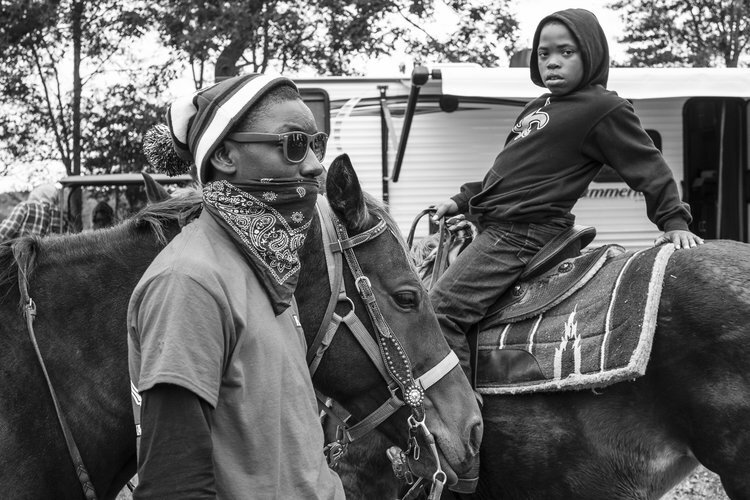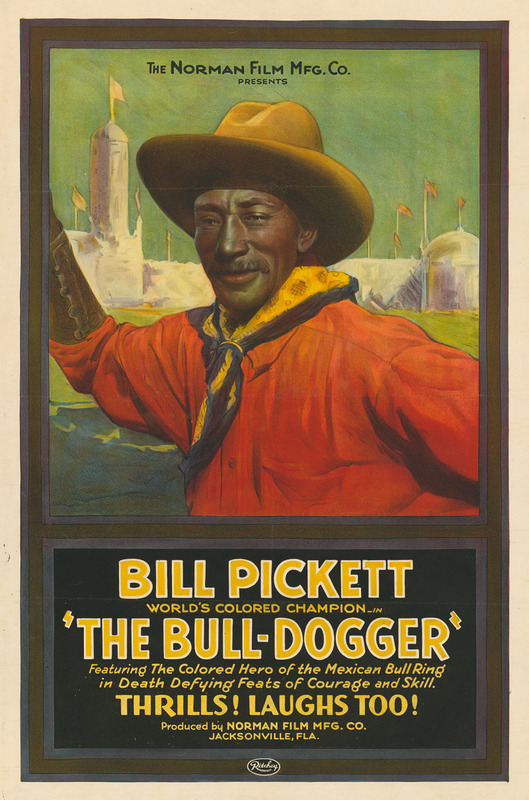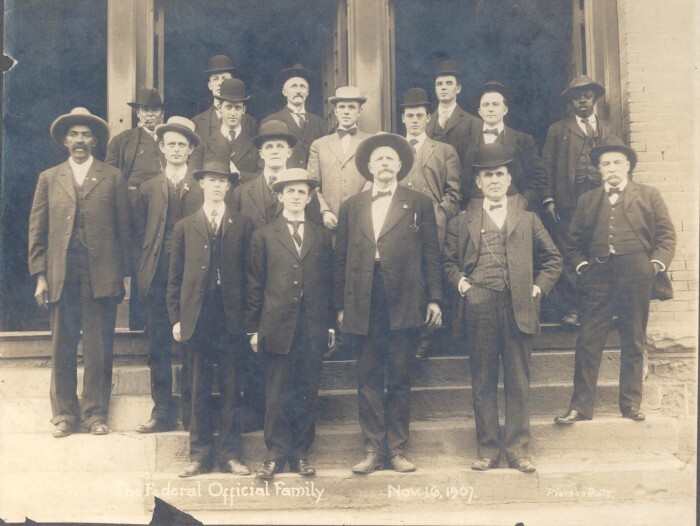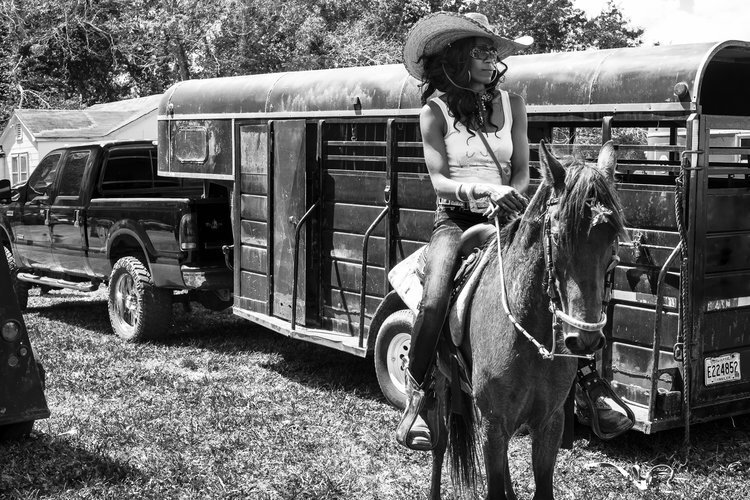Black Cowboys Making an Impact
The African American cowboys have been around since the birth of the American cowboy on the frontier. Historians actually estimate that one in four cowboys living in the Western Frontier were black, so why do we rarely hear about them and their contributions to the history of the cowboy? The most popular images we see of cowboys today come from the movies or TV shows, that played an enormous role in making him famous, rarely make the African American cowboy part of the narrative. When Americans began to settle in Texas, they brought slaves with them to work on the cotton fields and cattle farms. These slaves actually accounted for roughly twenty-five percent of the population of Texas settlers during that time. During the Civil War, ranchers who were out fighting, greatly depended on their slaves to care for their cattle and this allowed many of the slaves to develop skills that cowboys used such as: cattle tending, breaking horses, and doctoring cattle. These new skills allowed the slaves to become instrumental to the Texas cattle business after the war.
When the Emancipation Proclamation went into effect, it left the ranchers free of labores and they were forced to begin hiring the now free black cowboys as paid cowhands. Being a cowboy was actually one of the few jobs available to black men after the war so black cowboys who had skills in herding cattle found themselves in high demand. However, black cowboys still faced a tremendous amount of discrimination during these times. In the towns they passed during cattle drives, they were not allowed to eat in certain restaurants or sleep in some hotels. Although the discrimination was still prominent in the outside world, the black cowboys still seemed to find respect and certain levels of equality that were otherwise unknown to other black men during that era.
Bulldogger Bill Pickett
As history progressed, and the need for skilled cattle workers declined, it left many black cowboys without jobs but the new reality succeeded in making rodeos and Wild West shows more popular due to the public’s interest in the lifestyle of the cowboy. Cowboys such as Bill Pickett, who was born to former slaves actually became one of the most famous rodeo stars in history during this time. His international fame came from his distinctive technique of catching stray cows which came to be after watching how the dogs on ranches he worked at caught drifting cattle. Pickett was able to control a cow by biting the its lip which would calm it. He presented his trick, which was called bulldogging (or steer wrestling), for spectators around the world as a performer at the Miller Brothers’ 101 Wild Ranch Show. Because of his contributions to rodeos. Bill Pickett was the first black man to ever be inducted into the National Rodeo Hal of Fame in 1972, which was forty years after his death.
U.S. Marshal Bass Reeves
The Lone Ranger is an icon to cowboys. The masked ranger fighting off evil men on his trusty steed truly has stood the test of time in our history books. However, it is said that the character of the Lone Ranger was actually inspired by a legendary black lawman called Bass Reeves who’s start in life was that of a slave. While serving his master’s son, in the war, to fight for the Confederate Army, Bass was able to escape in the night into Indian Territory. Bass was able to learn the laws of the land as well as the customs and languages of the Seminole and Creek Native American Tribes. After gaining his freedom from the 13th amendment, Bass returned to his birthplace of Arkansas, married, and had 11 children.
Ten years after he became a free man, Bass returned to Indian Territory after being recruited by a U.S. Marshal to help in capturing criminals who were tormenting. Of the 200 deputy marshals who were recruited for this task, Bass was one of the only African American men and soon became the first black U.S. Marshal west of the Mississippi. Bass is said to have arrested over 3,000 criminals and killing 14 without even so much as a gunshot wound. The theory that The Lone Ranger was inspired by Bass Reeves stemmed from the fact that, in his more than 30 years as a marshal, Bass found himself in unbelievable encounter just like The Lone Ranger did and a large number of the criminals he arrested were sent to the Detroit House of Corrections which is the same city that The Lone Ranger would later be introduced in during his debut in the radio station WXYZ on January 30, 1933. However, Bass accomplished things that minimize the victories of his fictitious equivalent, in his journey from enslaved man to one of the firmest protectors of a government that had failed to safeguard his own freedoms. And while the certainty about the Lone Ranger may continue to be unproven, the life of Bass Reeves will continue to be an inspiration for real-life heroes today.
Urban Cowboys
Today, the modern cowboy had found a way to be fluent in both technology and tradition. The black cowboy community has been around for decades and there’s a number of those who belong to this community that are working tirelessly to keep the cowboy tradition alive in their own communities. The black cowboy has a significant contribution to history that has been scarcely documented. Black cowboys were famously known to be able to ride the toughest of horses and they were responsible for the sport we know call steer wrestling. In addition, the Bill Pickett rodeo, which was established in 1984, is the only touring black rodeo in the country and still tours today. Black cowboys across the country have established riding clubs in urban settings in order to give back to their communities and be a beacon of hope to inner-city kids that need support.
Programs like the Brotherhood Riders Youth Club is a program that mentors at risk youth in the Stockton, California and surrounding area. In the summer, Sylvester Miller who is the program’s founder, takes the kids to a number of rodeos taking place across California. A group called The Compton Cowboys came to be when a group of friends since childhood friends took it upon themselves to generate a safer community as well as defy the perception that African-Americans can’t be cowboys. A large group called the Louisiana Trail Riders formed in order to keep the black cowboy’s legacy alive and provide a safe space for people in their community to come. Ellis Feller, the founder of Fletcher Street Urban Riding Club established his club with the goal of providing a service to his city’s urban youth where he could teach them horsemanship, enable them to develop mental strength, gain physical grit and develop skills that can be practiced in the real world.



